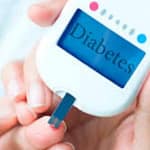Ozempic is a GLP-1 receptor agonist primarily prescribed for type 2 diabetes management. It works by stimulating insulin production, reducing blood sugar levels, slowing gastric emptying, and suppressing appetite. While Ozempic is not officially approved as a weight-loss drug, many individuals experience significant weight reduction due to its appetite-controlling effects. However, stopping Ozempic can lead to various health changes, including weight regain, increased appetite, and fluctuating blood sugar levels. Discontinuation should be managed carefully under medical guidance to minimise adverse effects. Read on as we discuss how stopping Ozempic affects your health.
What happens when you stop taking Ozempic?
1. Increased appetite
Ozempic helps reduce hunger by influencing the brain’s appetite-regulating centres. When you stop taking it, your natural hunger signals return, often making you feel hungrier than before. This can lead to overeating and difficulty maintaining portion control.
2. Weight regain
Since Ozempic aids in weight loss by suppressing appetite and slowing digestion, discontinuing it can cause rapid weight regain. Studies show that many individuals regain most of the lost weight within months of stopping unless they maintain a strict diet and exercise routine.
3. Blood sugar spikes
For people with diabetes, stopping Ozempic can lead to higher blood sugar levels as insulin production decreases. This can result in increased thirst, frequent urination, fatigue, and a higher risk of complications like nerve damage and heart disease.
4. Digestive disruptions
Ozempic slows gastric emptying, helping to prevent rapid blood sugar spikes and prolong feelings of fullness. When stopped, digestion may speed up, leading to issues like increased hunger, bloating, or even mild gastrointestinal discomfort.
5. Return of insulin resistance
For individuals using Ozempic to manage insulin resistance, stopping the medication can make it harder for the body to regulate glucose levels. This can increase the risk of pre-diabetes or worsening diabetes symptoms over time.
Also read: World Obesity Day 2025: Nutritionist Highlights The Dangers Of Ozempic
6. Cravings for high-carb and sugary foods
Without Ozempic’s appetite-regulating effects, cravings for high-calorie, carbohydrate-rich foods may return. This can make maintaining a balanced diet more challenging, leading to unhealthy eating habits and weight gain.
7. Potential energy fluctuations
Since Ozempic helps stabilise blood sugar, stopping it may cause energy dips and spikes throughout the day. Many people experience fatigue, sluggishness, or even mood swings as their body adjusts to the absence of the drug.
8. Increased risk of cardiovascular issues
Studies suggest that GLP-1 receptor agonists like Ozempic may provide heart-protective benefits. Stopping the medication could remove these benefits, potentially increasing the risk of cardiovascular issues such as high blood pressure or heart disease in some individuals.
9. Return of emotional eating patterns
Many people on Ozempic notice a reduction in emotional or binge eating due to its appetite-suppressing effects. Once discontinued, emotional eating behaviours may return, making it harder to maintain weight loss.
10. Need for alternative medications or lifestyle adjustments
For those who relied on Ozempic for diabetes management or weight loss, stopping the drug may require a shift to alternative medications or stricter lifestyle changes. Doctors may recommend dietary modifications, increased physical activity, or other medications to compensate for the loss of Ozempic’s benefits.
To minimise negative effects, it’s crucial to consult a doctor before starting or stopping Ozempic. They may recommend gradually tapering off the medication, adjusting diet and exercise habits, or introducing alternative therapies to help manage blood sugar and weight.
Disclaimer: This content including advice provides generic information only. It is in no way a substitute for a qualified medical opinion. Always consult a specialist or your own doctor for more information. NDTV does not claim responsibility for this information.













Leave a Reply